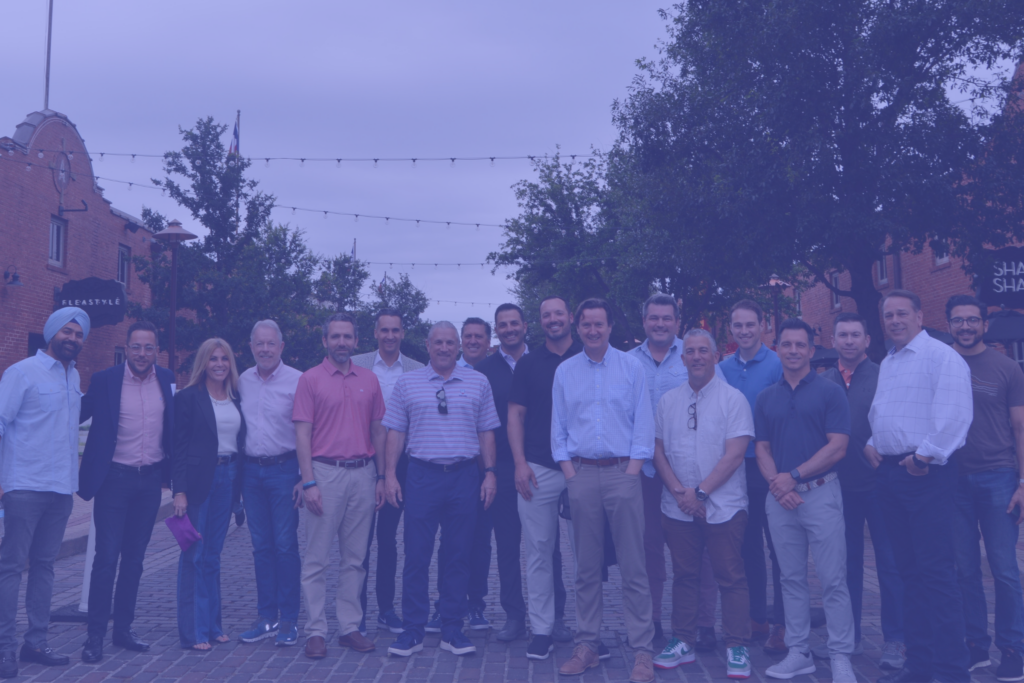Solutions to Key Issues from Top Brokers
By Vandana Macha | July 2024
In May, a dozen leading brokers met in Texas to discuss some of the thorniest issues the employee benefits industry is facing:
- Minimizing pharmaceutical costs
- Implementing effective population health strategies
- Addressing the challenges of the new world of work
These decision-makers belong to an innovative community of employee benefits brokers and consultants called the RAD Collective. The RAD Collective, created by Archetype, is focused on driving positive change in the employee benefits industry.

Figure 1: RAD members gathered for the third in-person summit in Fort Worth, Texas
After a collaborative summit (with many delicious drinks and laughs shared), the group developed three main strategies and solutions to attack the problems in these areas:
1. Pharmacy Benefits Manager (PBM) contracts should benefit the health plan users.
As pharmacy spend continues to rise, especially with GLP-1 excitement, Pharmacy benefits managers (PBMs) continue looking for ways to control drug costs. PBMs, such as Summit sponsor Prime Therapeutics, have an impact on drug pricing and proactively building cost-containment measures into a contract can help ensure an effective PBM partnership.
RAD members would love to see PBMs embrace fiduciary contracts, benefit design integration, and openness to international sourcing. Each of these measures reduces pharmacy costs for payors and patients. Implementing these strategies helps PBMs win employer and broker trust as well.
2. Oncology strategies should include comprehensive solutions with proactive measures.
Cancer care is a vital part of an employee benefits package. Cancer diagnoses significantly drive-up costs. Providing resources at each possible stage of the oncology journey manages current costs and prevents future costs.
A comprehensive oncology strategy consists of preventative, proactive, and reactive measures. Many employers already implement preventative and reactive strategies. GRAIL, one of the Summit’s sponsors, discussed the importance of including proactive strategies, like diagnostic solutions. Early cancer diagnosis is lifesaving and can help keep healthcare spending low by reducing preventative future costs.
3. Employers should create programs that help Gen Z succeed in the workplace. The work environment needs to adapt to the new normal.
The COVID-19 pandemic led to a great reimagining of what work looks like. Many companies shifted to hybrid or remote models. As Gen Z enters this work environment, they are experiencing increased loneliness and lack connectivity to their companies due to more isolated offices. Additionally, members expressed their concern that Gen Z may be missing out on informal mentoring opportunities that were previously provided through in-office workspaces.
Employers can implement strategies that foster community and mentorship in the workplace. Creating intentional mentorship programs, scheduling coffee chats between employees, and having some designated in-person days can help create a welcoming and productive workplace.
Interested in learning more about the RAD Collective? Check out the RAD Collective website.
About the RAD Collective:
The RAD Collective is an organization created by Archetype comprised of innovative and forward-thinking employee health benefits brokers and consultants. Over 50 top performing members from 30 different brokerages come together to work towards the goal of personal and collective growth. The community offers an environment to facilitate collaboration around industry-shaping innovation. The RAD Collective is led by Steve Herman and hosts various member events throughout the year to discuss important topics in the employee benefits industry.
